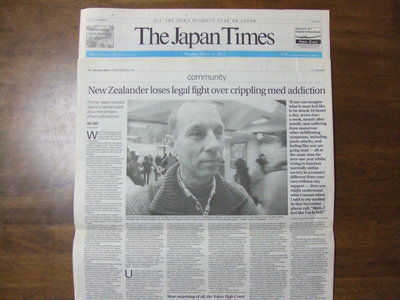About Me / My Story
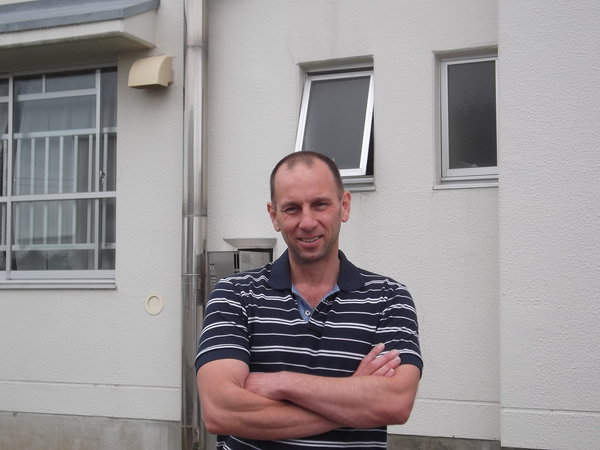
Me outside my evacuee housing unit
(Nagano, Japan 2012)
Name: Wayne Douglas
DOB: 9 September 1966
From: South Auckland, New Zealand
University Major: Japanese
Employment History: International relations, translator, English teacher, events organizer
Hobbies: Outdoor pursuits, gym training, cooking
Time in Japan: Approx 15 years (as at March 2014)
Personal Background:
I was adopted out as a six-weeks. I grew up in a lower-middle class neighborhood in South Auckland, New Zealand. My adoptive father left the family home when I was 4 years old; leaving my Mother to raise my younger brother and me alone while holding down a fulltime job. At age nine, I began attending boarding school.
After leaving school, I worked in the building industry, but due to the economic downturn in the late 1980s, there was no work around. So, at age 23, I returned to high school on the adult education program to study Japanese.
The following year, I moved into the city to continue with my Japanese studies at university. However, these studies didn’t come cheap. Before I knew it, I had a student loan and a bank loan, as well as my Mother had dipped into her retirement savings to help get me through.
Not wanting to let her down, I completely applied myself and was awarded a scholarship for outstanding students of the Japanese language before graduating in 1995.
I came to Japan as a young man with ambition to help foster ties between Japan and New Zealand and spent several years working in the field of International relations at various Japanese government offices.
My work had been highly acclaimed receiving publicity on TV and other media both in New Zealand and Japan. Everything was progressing smoothly and everything was looking on the up, until one day on May 11, 2000…
Top of Page
SAY WHAT ???
- I was prescribed benzodiazepines, without informed consent, not for anxiety, not from a psychiatrist, but for acute dizziness (associated with an ear problem).
- The drugs were completely unsuited to both the condition I actually had (Vestibular Neuronitis) and the condition I was incorrectly diagnosed as having (Sylvian Aqueduct Syndrome). See Expert Verifications.
- I had no idea what the drugs were (there was basically no information on the internet for me to refer to at the time either).
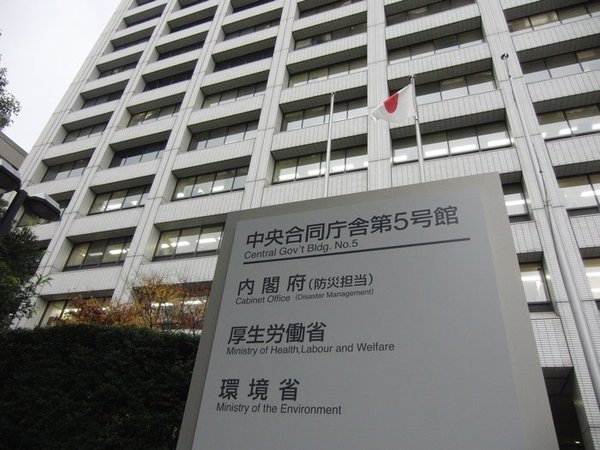
The Japanese Ministry of Health who have failed to educate doctors
BACKGROUND
On the night of May 11, 2000, I suffered from an acute vertigo attack which left me with an ongoing balance problem. I went to a general hospital but no diagnosis was given.
During the month of June, my sense of balance had been slowly improving; however, there was still no sign of a complete recovery and I continued to have dizzy sensations such as my environment floating or rocking.
The general hospital referred me to a specialist in balance disorders in Tokyo. He incorrectly diagnosed me as having Sylvian Aqueduct Syndrome (a rare condition caused by a narrowing of the midbrain canal), despite MRI scans showing negative.
He told me that in order to treat my condition it would be necessary to “change the constitution of my organic makeup” using a course of drugs. I was still quite sick at the time, there was no information on the internet in those days, and the doctor was considered a respected expert, so I decided to accept his judgment in good faith.
THE TREATMENT
Unknown to me at the time, the drugs he prescribed were: 3 benzodiazepines (Contol, Rivotril and Grandaxin), a tricyclic antidepressant (Tofranil - Imipramine) and a type of anti-inflammatory (ibudilast) marketed as Ketas. The benzodiazepines were all mixed together in powder form and dispensed in sachets with a combined diazepam equivalent of over 30mgs per day.
During the first few weeks: There appeared to be some initial settling of some symptoms; including my feelings of anxiousness (over not knowing what had caused my vertigo), muscle stiffness, and dizziness (which had been slowly improving anyway).
Following about 2 months: Some symptoms worsened (e.g. muscle stiffness) and new ones began appearing (e.g. palpitations).
Following 4-6 months: I experienced a significant worsening of symptoms, including the muscle stiffness, which was previously limited to periodic episodes in the lower back and neck / shoulder areas (due to my balance problem), but had now came to encompass my entire body changing in nature from periodic to ongoing. All of my muscles felt tight, heavy and numbed with tightness in my limbs and across my scalp, as well as my jaw began locking up. My sense of balance also ceased to improve and instead began to worsen.
Many new symptoms also appeared such as: Tachycardia (pulse rate: 68→90), pressure in chest, flushes (hot and cold), sensitivity to heat, tingling sensations, hypersensitivity to all stimuli, started to experience light tinnitus (when trying to sleep and upon wakening), dry mouth, taste abnormalities, mouth ulcers, stomach pains, loss of appetite and nausea (at time of initial vertigo but newly developed), loss of libido; emotional disturbances including panic attacks, chronic anxiety and depression, feeling detached, loss in concentration, slightly affected speech, confusion, mood swings, aggression, intrusive / scattered thoughts, feeling on verge of having fit / going mad; visual disturbances such as increased light sensitivity (with development of floaters), colour flashes, light flashes, sparkling sensation in vision, exaggerated after images, blurred / hazy vision, delayed focus (like seeing surroundings in sequence of snap shots), jaw pain, joint pain, general complete physical / mental deterioration – it looked like I was aging at the rate of one year every month with a grey, very sick looking complexion.
I never had any previous history of psychological, neurological or anxiety disorders prior to being prescribed these drugs.
NB: I didn’t realize it at the time, but I was actually suffering from withdrawal symptoms and side-effects.
“When tolerance develops, ‘withdrawal’ symptoms can appear even though the user continues to take the drug. Thus the symptoms suffered by many long-term users (more than 2-4 weeks) are a mixture of adverse effects of the drugs and ‘withdrawal’ effects due to tolerance.” (See The Ashton Manual)
CHANGING HOSPITALS
I made desperate attempts to bring my deteriorating condition to the attention of the doctor, but he kept dismissing my concerns. I tried stopping the prescriptions, but was unable to do so. So, I eventually changed hospitals.
However, the new hospital gave yet another bogus diagnosis of Autonomic Nervous Disorder, totally overlooking my state of benzodiazepine dependency, and prescribed yet more benzos, which included: Alprazolam (Xanax / Constan) and Clonazepam (Klonopin / Rivotril) with a combined diazepam equivalent of 48mgs per day.
The new doctor also tried to prescribe me a third benzo, Bromazepam (Lexotan, Lexomil), but after consulting him, I decided not to take these because I felt that the drugs were the main cause of my deteriorating condition.
WITHDRAWAL
After giving up hope on the Japanese doctors, I returned to New Zealand. When I arrived, my mother failed to recognize me at the airport. She said that I looked like a half dead zombie. I made another attempt to stop the drugs, but again wasn’t able to do so.
I underwent a consultation with my local GP. His practice was located only 100 metres down the road, however, as I was unable to walk that far, so my mother had to drive me there. I was diagnosed as benzodiazepine dependent and referred to the Alcohol & Drug Service for assistance.
During the reduction period and the months that followed abstinence, I became extremely volatile with an increase in most of my symptoms including: mood swings aggression, panic attacks, palpitations, hypersensitivity etc.
My time in Japan had been extremely painful but my suffering was still a long way away from easing. I can remember days when I screamed at my elderly mother over what I realize now were clearly trivial things.
New symptoms also appeared including: a tingling sensation over my face, loss in coordination, myoclonic jerks (involuntary movements), and a sense of an oily smell emanating from my body.
I can recall nights when my mother and I were sitting in the lounge watching television. I would sit there slightly rocking my chair back and forth, as I endured an amplification of all the previously mentioned drug symptoms. At times it felt like I was going to explode. I kept repeating to myself “I hope I don’t lose control and attack mum, I hope I don’t lose control and attack mum….” and just kept praying for it all to stop, but it never did, not for a long time.
It was really terrible. I seriously thought about running away but to where? This was home, and yet I felt as though I was in hell.
I was cognitively impaired to such a degree that I was unable to drive. My brain was all foggy and I was unable to concentrate or do much in the way of basic household chores.
After being off the drugs for just over 6 months, the nature of my dizziness (original complaint) changed notably for the very first time since my initial vertigo attack back on May 11, 2000 − from ongoing (24/7) to periodic dizzy spells only. Together with the removal of the drugs and time, my sense of balance eventually recovered 100%.
Most of my withdrawal symptoms resolved within the first year of stopping; however, some symptoms (e.g. panic attacks) continued for many years, there were relapses, and it took about 10 years before I really felt my true self again.
LONG-TERM PROBLEMS / PERMANENT DAMAGE
After coming through withdrawal, I developed cognitive impairment with a tendency to mix up letter order when writing or typing, confusing money amounts etc., memory problems, irritable bowel, frequent urination, constant running nose, more susceptible to stress etc., which all continue to this day. None of these existed prior to benzodiazepines and given that they were happening in my early forties, when I had always maintained a physical condition ten years my junior, these cannot be simply passed off as age related. It took about ten years for the panic attacks to resolve.
On occasion, a spot of clear light appears in my vision that looks like the backlight shining through a broken pixel on a computer monitor. Naturally, the eye floaters never recovered, and although there is no way of proving association, I’ve heard many stories of people getting these whilst being prescribed benzodiazepines.
I’m aware that benzodiazepines can cause an alteration in the activity of benzodiazepine receptors in brain GABA neurons; leaving individuals with heightened central nervous system excitability and increased sensitivity to stress (See The Ashton Manual).
Incidentally, for my presentation at the ISAM 2014 World Congress in Yokohama, I included some literature quotes on long term problems which may also be of interest.
EXPERT OPINIONS
Experts verifications later confirmed that the drugs prescribed to me were unsuited to both my actual condition (Vestibular Neuronitis) and the incorrectly diagnosed (Sylvian Aqueduct Syndrome). The additional bogus diagnosis of Autonomic Nervous Disorder, made by the other hospital, was also dismissed in several letters from Prof. Ashton.
FURTHER READING
- Personal Statement 1 gives an account of how the state of dependency evolved in relation to the treatment history.
- Personal Statement 2 focuses on how the dependency impacted on my life and those around me.
- My Dependency shows how I had to endure a state of dependency in another country whilst not knowing what was wrong with me because there was no informed consent.
- My Withdrawal shows how I had to endure withdrawal symptoms during the treatment (due to tolerance), during reduction, upon cessation, and for several months and years thereafter.
- My Recovery shows the remarkable effort I made in my recovery, going from a person who could hardly walk to one who could squat 180kgs in the gym.
- My Battle highlights the epic scale of my battle, as I fought this case in another country and language against a world famous doctor, the hospital, and the teams of lawyers and entire networks that no doubt sat behind them.
- The Japan Times - feature article gives an excellent overview of my case.
Top of Page
Say What Again?
- During court proceedings, the defendants were allowed to start arguing yet another completely different diagnosis (Autonomic Nervous Disorder) as a means of their defense.
- However, despite this other diagnosis having no actual medical grounds for ruling out drug dependency, the courts accepted it as the determining factor in ruling out my case (See Diagnostic Issues and Justice or Not? - point 5).
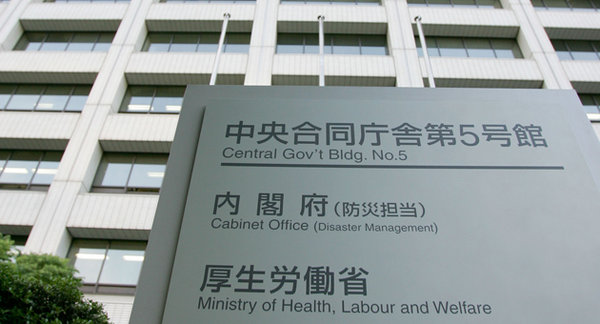
Inquiry at the Ministry of Health, Labor and Welfare
Background
After returning to Japan in 2005, I applied for the National Health Insurance. When I did, the clerk asked if I had been in any of the national insurance schemes before. I explained that I was in the National Social Insurance scheme (which I paid about $US500 into each month) at the time I was incapacitated by the doctor induced benzodiazepine dependency. The clerk suggested that I make a claim for loss of earnings for the period of incapacitation (about 14 months).
The clerk further explained that, due to the 2 year statute of limitations, any claim would be initially declined, but then if I explained the circumstances (1. I had to return to New Zealand, 2. I was cognitively impaired) at the appeal; there was a good chance that I may be granted compensation.
Initial application
Acting on the clerk’s advice, I followed the procedure and lodged my application at the Social Insurance Office in Urawa City.
Appeal
After the initial claim was declined, I made an appeal to the Saitama Regional Office; however, the appeal also ended up being declined.
Second and final appeal
So, still acting on the clerk’s advice, I made one final appeal for an inquiry at the Ministry of Health, Labour and Welfare (the same organization who has failed to educate doctors on benzodiazepines, which basically caused the problem in the first place).
The inquiry was held much like a small claims court. It lasted for about 90 minutes and I was grilled from all sides as if I was the guilty party. As proceedings were about to be adjourned, it seemed that I had successfully convinced the judicial panel that my claim was just.
Then at the very last minute, one of the examiners pointed out that I had made an application for a rebate on my pension after returning to New Zealand; effectively showing that I had sufficient cognitive ability to have made the insurance claim as well. The Chief Examiners’ face lit up with excitement.
I explained that the preparations for the pension rebate had all been done for me by my previous employer and that I didn’t need to do any of the paperwork. However, the Chief Examiner just kept grinning; clearly deriving a sense of satisfaction that he now had a potential reason for denying me any form of compensation.
Immediately after the hearing, I posted a letter explaining the situation in more detail, but in the end, the fact that my previous employer did my pension rebate for me, was not accepted as grounds for upholding my claim that I was cognitively impaired, and subsequently, my application was declined.
Returning to Japan was a huge psychological barrier for me. Due to the nature of protracted withdrawal syndrome, I was still considered a benzo dependent patient in remission and I was very vulnerable to stress, flashbacks and recurrences of withdrawal.
During this time, I was waking up every morning with extreme nausea and still suffering from ongoing panic attacks, so it was an extremely challenging time.
Top of Page
Say What Yet Again?
Despite the evidence (See Case Section), and despite ending up in a drug rehabilitation facility where I underwent a formal withdrawal program with follow-up consultations spanning several years, the Japanese courts said it couldn’t be proven that I had formed dependency on the drugs that were prescribed to me...
It begs the question “Why do people spend time in drug rehabilitation centres for again?”
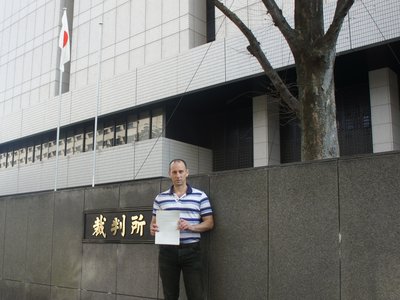
Outside the Tokyo High Court
As if the insurance claim above hadn’t been stressful enough, I then set out for compensation in the courts which presented another entire set of challenges. Below is an outline of how my case was handled in The Tokyo High Court.
- Diagnostics excluded: 3 criterions were ignored in the verdict resulting in a failure to rule out the fact I was dependent in terms of the DSM-IV-TR which formed the overall basis for the entire case.
- Misquoting evidence: The High Court verdict stated “...the only written information contained in the package insert of the benzodiazepine type drugs is that it is possible for drug dependency to form on high repeated doses” However, also stated was “high or repeated doses.”
- Clinical information ignored: E.g. no prior neurological or psychological history, a series of failed attempts at stopping or reducing; ability to work before the drugs, work incapacitation following treatment, ability to return to work again after stopping etc.
- Selective symptom analysis: The judgment was based on a simple analysis of select symptoms that had been largely cut, misinterpreted or taken out of context.
- Withdrawal symptoms excluded: New symptoms recorded at the withdrawal facility during reduction were completely ignored. E.g. Myoclonic jerks, loss in coordination, paresthsia over face, tightness in cranial (feeling of tight band around head), oily smell emanating from body – glandular reactions etc.
- Facts misrepresented: The court concluded that because the dosage of BZs I was prescribed remained the same throughout the treatment, without any apparent efforts to seek dose increases, this showed that I had not developed tolerance and was therefore not drug dependent. However, this notion was a complete misrepresentation of our claim. That is: tolerance was manifested by a withdrawal reaction during the treatment; not a craving to increase dosages. This is the reason why the DSM-IV-TR Criterion 4 (Loss of Control) was applied but was ignored in the verdict.
- Unscientific term (diagnosis) employed: Despite the term Autonomic Nervous Disorder having no actual medical / scientific grounds for ruling out drug dependency, the courts accepted it as the determining factor in ruling out my case.
- Contextual facts ignored: E.g. the AND diagnosis only came after 6 months of BZs – never before.
- Relevance ill-considered: BZ dependency actually causes stress / anxiety and hyper-function of the autonomic nervous system and associated symptoms (so-called AND).
- Biased information employed: Drug company package inserts (full of inadequacies) used to determine dosage at which BZs could be deemed addictive.
- Credible evidence ignored: Expert opinions stating that dependency can, and does, develop on clinical doses if used for more than 2-4 weeks.
- Key witness denied testimony: Clinical Director and diagnosing doctor (twice without clear reason).
- Informed consent irrational: The judge never questioned the contradiction between the defendant doctor’s original diagnosis of “Sylvian Aqueduct Syndrome” and his prescribed drugs. Not to mention the fact the defendant doctor began claiming a totally new diagnosis (AND) for the first time only after court proceedings had begun.
- Monitoring irrational: The judge failed to distinguish between routine tests for checking balance functions and tests for checking the potential forming of drug dependency.
- Faulted proceedings: The original Chief Justice was replaced part way through proceedings by another Chief Justice who knew absolutely nothing about the case or BZ.
- Facts overlooked: One notable point in my case was that my health condition continued to improve even whilst being exposed to the most intense stress imaginable during court proceedings. This fact puts paid to the defense’s claim that my condition was simply caused by anxiety/stress alone and that I was prone to such. The reason being is that someone who is simply suffering from stress and prone to it wouldn’t be improving under increasingly stressful circumstances. It simply does not stand to reason. This was not considered in the verdict either.
- Final plea: In the very last sentence of my final statement, I posed the question “Why do you honestly think I ended up in a drug rehabilitation centre following 9 months of highly addictive BZ prescriptions?” The case closed without any response.
What do the world's 2 leading experts say?
Nearly all Wayne Douglas’s symptoms during BZ treatment, dosage reduction and withdrawal (recorded in Dr. Judson’s report) are due to dependence and symptoms of autonomic overactivity, which is common in these circumstances. Professor Heather Ashton. Emeritus Professor of Clinical Psychopharmacology, University of Newcastle upon Tyne, England.
Dear Wayne, You were certainly subject to judicial mishandling of your case! I greatly sympathise with you. Yours sincerely, Professor Malcolm Lader. O.B.E., LL.B., Ph.D., M.D., D.Sc., F.R.C. Psych., F. Med Sci. Emeritus Professor of Clinical Psychopharmacology.
FURTHER READING
- Justice or Not? further highlights many of the injustices demonstrated by the High Court.
- Official Loss & Damage Forms show the actual amount of losses and damages in my case.
- Personal Statement 1 gives an account of how the state of dependency evolved in relation to the treatment history.
- Personal Statement 2 focuses on how the dependency impacted on my life and those around me.
Top of Page
Some of my goods arrive from Fukushima whilst
writing my Supreme Court appeal on the move

I continued to write my Supreme Court appeal whilst moving several times in the midst of radiation fallout, aftershocks, blackouts etc. and later unemployment and homelessness. By the time the Supreme Court decision was delivered, I had moved 6 times (within 6 months).
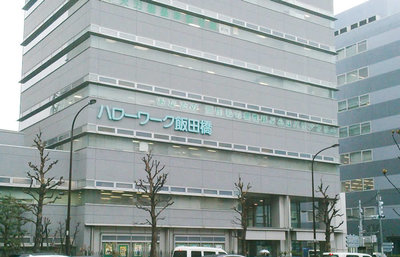
Hello Work (The Japan Labor Office)
The Tokyo High Court Verdict was delivered on February 7, 2011 – just 5 weeks before the Great Eastern Japan Mega Quake and Fukushima Nuclear Disaster on March 11, 2011.
Up until the time of the 3-11 disaster, I had been working at JICA (Japan International Cooperation Agency) which is a major Government International Aid and Disaster Relief Organization. I was contracted to work at their Nihonmatsu Training Center in Fukushima through a teacher recruitment company.
However, due to the effects of the disaster, the entire operation was temporarily shifted to Osaka, where I ended up being laid off just 3 months after. I later applied for the unemployment insurance, but my application was rejected. According to the labour authorities, the teacher recruitment company that I was employed by had provided incorrect information regarding my conditions of employment.
(The said labour authority based their decision on this incorrect information despite having the correct documentation, including employment contract and pay slips, to begin with.)
Being in a desperate situation, I was forced into a position where survival meant that I needed to appeal the decision, and rightfully won, which resulted in my appeal being accepted and subsequent provision of the unemployment insurance for myself and others (some of the teachers had young children to look after).
Later, the teacher recruitment company recommenced their operations at the JICA training facility in Fukushima, and after the nuclear incident had settled to a reasonable degree, I began applying to return to work.
However, despite my excellent work record and ongoing attempts, the company never allowed me to return to work, and instead, continued to recruit inexperienced newcomers (including candidates from overseas).
They also commenced operations at the JICA training facility in Nagano, where I am residing as an evacuee, but again, continued to recruit other inexperienced teachers who hadn’t been displaced by the disaster at all.
I tried bringing this situation to the attention to my place of work (JICA), due to the very reason that they are an International Aid and Disaster Relief Organization, but they said that they were unable to help.
Despite these additional challenges, and struggling just to put food on the table, I continued to contribute to the benzodiazepine cause by using the time to build this website, and I was able to assist with the finalization of The Ashton Manual in Japanese, which was published in the Yomiuri Newspaper.
Top of Page
- Messages of Support shares some messages of support that were kindly sent to me from various people following the conclusion of my case.
- Messages of Thanks shares some messages of thanks to people who have supported me.
- My Thoughts are included as a means to try and help raise more awareness.
- Reader’s Column contains shared comments.
- Official Loss & Damage Forms show the actual amount of losses and damages in my case.
Top of Page
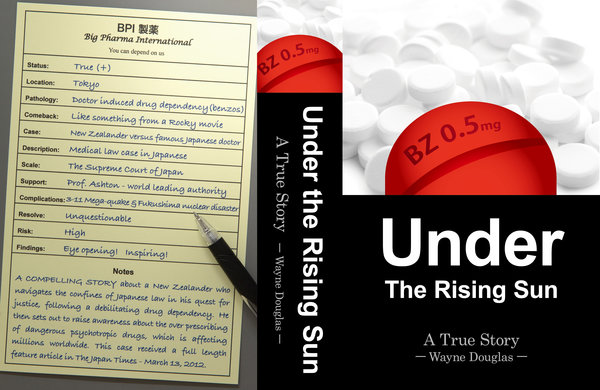
In order to try and make the most of my time in my evacuee accommodation, I decided to write a book. Written in a novel type prose, it is intended to be more of an entertaining read, but also has an underlying educational aspect.
The story takes the reader on a journey through prescription drug dependency in another country (Japan), through the entire judicial system, and into the 3-11 Mega quake and nuclear disaster as it happened, whilst capturing life in Japan along the way.
I have already written the initial draft which took 3.5 years to complete and I am now working on my own independent edit. Due to the costs associated with hiring a professional editor, legal advisor, publishing etc. I would very much appreciate any donations towards helping seeing this work through. Please visit the donation page.
Top of Page
W-BAD 2016
2023
(19 Sep 2023): Participating in visitation to the Japan Ministry of Health with Dystonia Support Group Representative Hideichi Kawajima to lobby for amendments to BZ component of a Serious Adverse Drug Reaction Response Manual published by the Japan Ministry of Health.
(Dec 2022 ~ Sep 2023): Writing article for Mikhaila Peterson on the risks of taking benzodiazepines as prescribed.
(11 Jul 2023): 8th World Benzodiazepine Awareness Day. Overseeing the eighth annual W-BAD and relaunching the W-BAD YouTube channel.
(13 Apr 2023): Visiting Senator Ryuhei Kawada's office at the Upper House of Councillors with Medwatcher Japan Representative Dr. Hirokuni Beppu and Dystonia Support Group Representative Hideichi Kawajima to request support for amendments to BZ component of a Serious Adverse Drug Reaction Response Manual published by the Japan Ministry of Health.
2022
(11 Jul 2022): 7th World Benzodiazepine Awareness Day. Overseeing the seventh annual W-BAD event and posting pamphlets around town.
2021
(11 July 2021): 6th World Benzodiazepine Awareness Day. Overseeing the W-BAD 2021 effort with the focus being on its revival (see details below).
2020 ~ 2022
(Aug 2020 ~ Aug 2022): Spending a solid 2 year effort on reviving and rebuilding World Benzodiazepine Awareness Day (W-BAD) after it was subjected to internal subversion leaving it totally decimated.
(Aug 2020 ~ Aug 2021): Preparing an enormous amount of documentation including proposals, The W-BAD Chronicle (1,227 pages) and The W-BAD Report (47 pages) together with its appendices (25 pages) as well as a set of about 10 accompanying documents, video address and public poll to name but just a few during the one year resurrection effort.
(Aug 2021 ~ Aug 2022): Rebuilding the entire W-BAD website with considerable restoring, restructuring, rehumanising, rearranging, updating, tidying up and creating scope for development during the one year restoration effort with only two days of rest over two year project (see Relaunch Notice for details).
2020
(17 Nov 2020): Sharing benzodiazepine related information at a political function in Tokyo attended by Ryuhei Kamata (Upper House of Councillors), his wife Mika Tsutsumi (international bestselling author), around one hundred fellow politicians including former Prime Minister Naoto Kan, Director of the Benzodiazepine Yakugai (drug damages) Association Masashi Tada, blog writer Kazuko Shimada and about five prescription drug damage victims.
(11 July ~ 11 Aug 2020): 5th World Benzodiazepine Awareness Day. Participating in talks at Japanese Health Ministry along with the submission of a people’s petition – this fifth annual visitation was postponed by a month and limited to 5 participants due to coronavirus (see more details).
(23 June 2020): Preliminary event: Personally handing out W-BAD pamphlets and posting into letter boxes around town while collecting signatures for a people’s petition to the Ministry of Health (see more details).
(29 Apr 2020): Lodging a ten page application to become involved in a class action lawsuit against the Japanese Government through the Benzodiazepine Yakugai (drug damages) Association (discontinued: no legal group willing to take on case).
2019 ~ 2020
(Dec 2019 ~ Jul 2020): Editing and posting a series of videos as follows.
(2 Feb 2020): Posting the Public Appeal at Political Rally video.
(31 May 2020): Posting the Japan Government Info Drop video (in English and Japanese) as build up to World Benzodiazepine Awareness Day 2020.
(11 Jul 2020): Posting the Benzodiazepine Evidence Hearing video (House of Representatives) to mark the fifth annual World Benzodiazepine Awareness Day.
(12 July 2020): Posting the Press Conference video (Q&A about the Japan House of Representatives BZ Evidence Hearing) to cap things off for World Benzodiazepine Awareness Day 2020.
2019
(6 December 2019): Implementing an Information Drop at the Japanese Government Buildings: House of Representatives (First and Second Members Buildings) and the Upper House of Councillors. Distributing information on benzodiazepines and W-BAD pamphlets to all 713 national politicians, including the Prime Minister’s Office and meeting with a well-known politician (see more details).
(24 November 2019): Making a public appeal and posing questions about the benzodiazepine problem to political party leader Yamamoto Taro during his political party launch while handing out W-BAD pamphlets.
(7 November 2019): Attending a press conference at the Ministry of Health in Tokyo in relation to the Benzodiazepine Evidence Hearing at the Japan House of Representatives (also in attendance were Tokyo Metropolitan Legislator Reiko Ueda, Leading Japan Ophthalmologist Dr. Masato Wakakura and Organizer Yuriko Tada).
(7 November 2019): Giving a presentation during a Benzodiazepine Evidence Hearing Japan held at the Japan House of Representatives, First members Building, Conference Room 1 (also in attendance were Tokyo Metropolitan Legislator: Reiko Ueda, Leading Japan Ophthalmologist: Dr. Masato Wakakura, Organizer: Yuriko Tada, Other Speakers, Supporters, Victims and Politicians).
(11 July 2019): 4th World Benzodiazepine Awareness Day. Participating in talks at Japanese Health Ministry with victims and distributing pamphlets during the weeks before.
(23 June 2019): Preliminary event: Personally handing out W-BAD pamphlets at a public fair day and posting into letter boxes around town (while confronted with life difficulties).
2018
(July 11, 2018): 3rd World Benzodiazepine Awareness Day. Handing out pamphlets around the streets in Downtown Auckland, New Zealand (see more details).
(26 June 2018 ~): Preliminary event: Distributing pamphlets around the community in Taranaki, New Zealand.
(April ~ July 2018): Helping coordinate the 3rd annual World Benzodiazepine Awareness Day.
2017
(31 Oct 2017): Attending a press conference at the Japan Ministry of Health with representatives from Medwatcher Japan.
(Mid-July 2017): Contributing footage to the Film As Prescribed (see trailer).
(11 July 2017): 2nd World Benzodiazepine Awareness Day. Helping organize and participating in talks with Japanese Health Ministry with victims and distributing pamphlets during the weeks before.
(9 July 2017): Preliminary event: Posting 500 W-BAD pamphlets around Matsumoto (see more details).
(21 Mar 2017): As a result of the doctors’ petition mentioned further below and the 2016 W-BAD visitation to the Japanese Health Ministry, amendments were made to all package inserts for BZs prescribed in Japan.
(Jan~Jul 2017): Helping coordinate the setting up of the Official W-BAD website and organizing the 2nd World Benzodiazepine Awareness Day.
2016
(28 Jul 2016 ~ 1 Dec 2016): Making the 2016 W-BAD Wrap Up Video (see video above).
(11 July 2016): 1st World Benzodiazepine Awareness Day. Organizing the overall global event and participating in talks at Japanese Health Ministry with victims and politicians (see above video).
(27 June 2016): Preliminary event: Helping organize proceedings and participating in W-BAD Pamphlet Appeal at Shinjuku Station in Tokyo with victims and 3 politicians (see above video).
2015 ~ 2016
(Dec 2015 - July 2016): Establishing World Benzodiazepine Awareness Day.
(April 2015): Taking part in a meeting at Medwatcher Japan in preparation for a doctors' petition to the Japanese government demanding stricter controls for prescription benzodiazepines - submitted by Medwatcher Japan on 28th October 2015.
2014
(October 2014): Giving a presentation to highlight the dangers relating to the “miss-prescribing” of benzodiazepines and similar drugs at the International Society of Addiction Medicine World Congress during the Pacifico Yokohama Conference Center in Yokohama, Japan.
(March 2014): Launching this website (Benzo Case Japan) in the hope that others can benefit from the sharing of my experiences and associated information.
2013
(Mid 2013): Working on a medical paper with Prof. Ashton and Japanese doctors with me as the clinical subject (discontinued).
(March 2013): Coordinating an enquiry between a Japanese doctor and Prof. Ashton to help clarify ways to treat patients who had been stupefied as a result of being prescribed excessive and prolonged doses of benzodiazepines.
(January 2013): Arranging permission to have The Ashton Manual in Japanese printed as a hard copy to help improve access for elderly people.
2012
(August 2012): Coordinating an interview between Prof. Ashton and the Yomiuri Newspaper for a newspaper article to help raise awareness regarding some of the problems with benzodiazepines in Japan.
(Mid 2012): Assisting with translating The Ashton Manual in Japanese which was published on August 19, 2012.
(Jan 2012 ~ current) Authoring and editing my book, Under the Rising Sun, endorsed by the late Prof. Heather Ashton and positively supported by several world renowned doctors with its potential highly rated by a London Publisher (see more details).
2003 ~ 2011
(Feb 2003 ~ Oct 2011): Fighting a torrid battle (in Japanese) for nearly 10 years (including preparation time) through to the Supreme Court of Japan to help get recognition for the pain and suffering caused by prescription benzodiazepines, both in my own case and throughout society in general. My lawyer and I fought this case in earnest to try and set a precedent with a view to lobbying for safer benzodiazepine prescription guidelines in Japan and to help raise greater awareness in general worldwide (See Case Section).
Mid 2000 ~
Going through the excruciating experience of suffering from prescribed benzodiazepine injury including dependency, withdrawal, side-effects, adverse effects, long term effects and permanent damages (see My Story). This forms the foundation for the successive years of awareness raising efforts outlined above.
Top of Page

Dear Wayne,
Well done for all you are doing to get information out there about the risks associated with these drugs and I hope you educate many people in the course of your campaigning.
Kind Regards
Jim
Jim Dobbin MP
House of Commons, London
Top of Page

Due to the damages that I’ve suffered, and all the campaigning / volunteer work that I’ve been doing, I can’t survive without donations. Therefore, any contributions are most welcome. Thank you!
Top of Page
Following the damages from prescribed benzodiazepines in Japan, unfair courts, being displaced by the Fukushima disaster, and campaiging to raise awareness about benzodiazepines, after nearly 20 years in Japan, at age 53, I have been left alone with nothing and struggling.
No money, no savings, no assets, no future security, no family and no means of living in my own country (while I was being subjected to the above damages in Japan, NZ had become a runaway economy with record homelessness, so it was a double hit).
All that I have is debt and a book-in-the-making, which has become, not only a way of raising more awareness, but also a desperate means of getting some compensation, as the courts failed to deliver justice - there are no guarantees, and the cost in terms of QOL is difficult.
In December 2017, I tried returning to New Zealand to finish writing my book; however, due to unforeseen circumstances, I was unable to do so. Being in a remote area, without anyone around, miles away from my hometown, I fell into depression.
Desperately, I tried returning to my old job in Japan, but the school was going through a transition, and after 4 months of talks, there was no way forward, when I become emotionally exhausted.
The stress was so great that I developed all-over body pain. With the doctors closed on weekends, I went to ER 3 times (over different weekends) where they suspected PTSD, anxiety etc.
Eventually, I got another job in Japan, but leaving my elderly mother was so difficult, and my depression so bad, that I kept changing my mind which caused her to have an emotional breakdown.
She lives in chronic pain with 2 perforated discs in her spine, arthritis and numerous health problems. Her emotional state is so fragile that she cannot have people at the house apart from brief visits including me.
She gave her all, raising my brother and I alone, as adopted children, following the loss of her own mother and divorce.
She then worked extremely hard over the years and used her retirement savings to help supplement my student loan for my university education (to learn Japanese as an adult student at age 23), but due to the above, all it has resulted in is hardship.
Following my mother’s emotional breakdown, her friend also asked that I never contact her again, so I have no way of knowing if my Mother is okay.
Current situation
- Basically, lost the ability to live in my home country - no place of belonging – no home base, no family of my own.
- Only 3 relatives left (all over 80 and in ill-health), so fear that when I do go back to NZ, there may not be anyone left.
- Xmases and birthdays make things difficult as the loneliness kicks in more.
- The loneliness is difficult, as I’m the type of person who needs to be in the company of others (family and friends).
- Struggling with depression over the destruction of my life, stress of being alone and anxiety over what lies ahead.
- I haven’t been able to repay my Mother her retirement money that she lent me for my education, which has resulted in feelings of guilt for me and additional hardship for her.
- Have many debts.
- Having to start over again from scratch in Japan (nothing more than a single futon on the floor) at age 53 while alone without any obvious future prospects is difficult.
- Went to churches asking for donations for transport etc. to attend World Benzozodiazepine Awareness Day in Tokyo.
- Coming to end of working years and seeking this temporary shelter back in Japan may disqualify me from the New Zealand pension, resulting in more anxiety and insecurity.
- Writing my book is an attempt at earning my own compensation, as the Japanese courts failed uphold justice, so I’ve been left in a compromised situation, implicating the rest of my life.
- A lot of time has been taken away while fighting for justice in Japan: no family events, birthdays, etc. People have been passing away and haven’t even been able to attend funerals – left to mourn alone.
- I fear ending up completely alone with nothing and no body.
- There has always been environmental stress in Japan and this time it’s a constant vibration from an electric water pump that sends out low frequency waves that travel not only throughout the room but also your head.
- Many say it was my choice, but the drug damages from prescribed benzodiazepines and the unfair courts were not my choice. Regarding the campaiging, yes, it was my choice, but I felt compelled to do something.
- My plan was to finish my book and return to NZ while I still had a chance to resurrect my life and spend some quality time with my dearest mother before her condition deteriorates too much (I hadn’t seen for a 10 year period before that), and to be reasonably settled when she passes, which will be the most trying time in my life, so that I could better cope, especially considering I have no other family or support.
NB: My book has been endorsed by Prof. Ashton and checking the draft was the last thing she worked on, as it too is intended to raise global awareness.
Donations
Any contributions from the general public to help me survive and finish the book are gratefully received. Thank you.
NB: I receive no donations through W-BAD which are managed by an NPO and go towards the general cause.
Top of Page

This website has been constructed by me personally for the purpose of raising awareness about doctor induced benzodiazepine drug dependency and litigation problems.
The purpose of this site does not include any form of retribution. Also, for privacy reasons the defendants’ names along with certain other names have been omitted from all public documentation contained herein.
There are no other persons / parties involved and it in no way represents any organization or activist type movements.
It is not intended as medical or legal advice – please see Disclaimer.
Throughout this most grueling of challenges, I was always able to draw on inspiration from the All Blacks, and in particular captain Richie McCaw.

No matter how hard things got, or even when they were hard done by, they never complained and just got on with it.
AWESOME!
There were many challenges in my case.

These included fighting a world famous doctor in another country and language, acting as go-between for a harsh natured Japanese speaking lawyer and a sensitive natured English speaking doctor, making my Supreme Court Appeal whilst evacuating from Fukushima etc during the 3/11 disaster etc…
Many people have asked me why I fought as far as the Supreme Court of Japan and why I decided to set up this website.
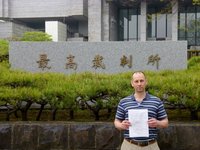
Regarding the former, I felt it was just simply wrong – people shouldn’t go to their doctor and come away suffering like that. I could see there was a significant problem in the current medical world that was affecting not only me but many others as well. I felt the problem needs to be brought to the attention of the authorities and there needs to be some accountability.
Regarding the later, knowing what prescription dependency is like, and being aware of the Effects on Us All, I felt the need to do something so that others aren’t led into suffering the same fate. This gave way to the idea of establishing this website.
I included the quote in the top left corner of this site because many people thought I was crazy for pursuing my case.

However, my philosophy is we can either choose to do something, or choose to do nothing. The former gives way to hope for many people. The latter…? Whichever way, it’s all in our hands…
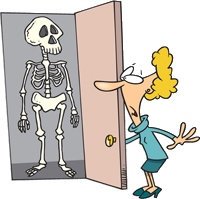
It seems the truths about the potential dangers of benzodiazepines are slowly coming out but with so many cases of prescription dependency worldwide there is clearly a long way to go.
Also, in my experience it appears as if dependency to prescription drugs leans toward a subject of taboo – almost as if society is succumbing to it.
However, is keeping these problems locked up in the closet going to help anyone or change anything?
At first it was difficult sharing my case and story online because it necessitated disclosing personal information, however, I felt the need to come out and help raise awareness outweighed this…

You may be interested to see the notes on corrections of Japanese translation errors, which were contained in the dependency medical report translations, together with explanations of the nature of these errors, and consider their potential implications on the case.
This is very interesting!
What worked well?
What didn't work so well?

For the interest of the reader, in this site I have given feedback on what worked well in my case and what could have been done better.
In my case, “confusion” appeared to be the main tactic of choice employed by the defense.
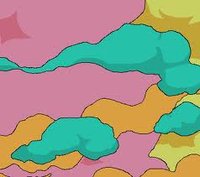
Enter the term “Autonomic Nervous Disorder” (The Perfect Smokescreen).
What are benzos for again?

The only time I’ve ever needed to visit a psychologist in my life was AFTER (wrongfully) being prescribed benzodiazepines…
I went from being barely able to walk when I was on benzodiazepines to being able to squat 180kgs following abstinence and rehabilitation.

Most surprising of all, the high court relied on the packaging produced by the pharmaceutical company to determine the dosage at which benzodiazepines could be deemed addictive.

“I don't feel like I lost, I feel like I won and the court failed,” he says. “It feels like they were protecting the doctors and failed to protect society.” "What I want to do is use my experience and the material generated through my case to provide a resource to others who are dependent or may become dependent."
The amount of actual loss and damages in my case can be seen in the Official Loss and Damage Forms which are registered with the courts.

My Official Court Statement 2 may help give an idea of the nature of some of these damages.
This section shows a variety of other benzodiazepine related videos that may be of interest.


When do you suppose my condition was at its worst?
- When I was experiencing moderate levels of work related stress?
- When I was working a high pressure job and involved in a rigorous court battle in another country and language against a world famous doctor, the hospital, and the teams of lawyers and entire networks that no doubt sat behind them?
The answer is A.

Why?
Because at the time of situation (B) above, I wasn’t being mislead by a doctor feeding me a cocktail of highly addictive prescription drugs.
Instead I was employing the use of practical (non-drug) stress management techniques learnt in New Zealand before I returned to proceed with litigation in Japan.
Same principles applied to coping with the affects of the 3-11 disaster...
I first became acquainted with Prof. Ashton when my lawyer and I were desperately seeking literature stating that a patient can experience withdrawal symptoms even while still taking the drugs.
She subsequently provided this key information and later other useful information as well.
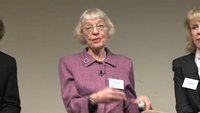
We maintained close contact ever since; making efforts to raise awareness about this massive social problem.
This work included the translation of The Ashton Manual in Japanese.
Throughout this entire ordeal, I came to realize the importance of “Balance”.

As pressing as the court deadlines were and as demanding as the case was, without maintaining a balance in life including rest, recreation, work, socializing, diet, sleep etc. it would have been impossible to sustain.
However, it was always a razor edge fine line between making progress and maintaining health and balance.
Subsequently, it took a lot of skill and adapting.

This section focuses on some of the apparent injustices of the Japanese courts in my case. To help highlight these, some parts of this section include cross-referencing between the High Court Verdict and the Dependency Reports which were all based on the official evidence and the DSM-IV-TR diagnostic criteria for dependency.
A doctor that took the time to listen…

Whilst residing in state housing in Nagano, as an evacuee from Fukushima, I consulted a local ENT about ear pain from overuse of earplugs.
As we got talking he learned of my situation with regards to being displaced by the 3/11 disaster and Fukushima nuclear accident.
As a result, he also learned that I was under some stress.
However, instead of labeling me with some fancy diagnostic term and prescribing me drugs, he sat down and we discussed possible solutions as to how to I might be able to relocate, get my job back, etc.
He did this after his surgery had closed over a cup of tea – what a great doctor and what a great guy!
It was difficult to get any relief from the ongoing symptoms
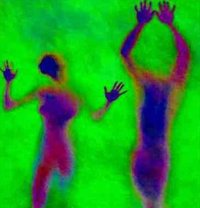
Unlike injuries where you may get some relief from adjusting your posture etc, with drug dependency in my case, the pain was both mental and physical and ran 24/7 regardless…
(Partial Reference: benzo.org.uk)
Journalists have regularly exposed the Benzodiazepine Scandal with stories of celebrity deaths attributed to benzo use as well as the blighted lives of ordinary people.
Benzodiazepines were, by all accounts, implicated in the deaths of:
- Elvis Presley
- Paula Yates
- Michael Jackson
- Heath Ledger
- Brittany Murphy
- Amy Winehouse
- DJ AM (a.k.a. Adam Goldstein)
- Anna Nicole Smith
- Margaux Hemingway
- Don Simpson
- David Foster Wallace
- Whitney Houston

I Will Always Love You
How anti-anxiety meds are killing celebrities
It used to be that hard drugs were the cause of celebrity overdoses…Of the celebrities who have overdosed on drugs in the past five years, eight appear to have taken prescription medications — specifically, a mix involving easily accessible anti-anxiety medications known as benzodiazepines or “benzos.”
“Benzodiazepine addiction is a terrible affliction; these people are not drug addicts but they have become hooked on repeat prescriptions of tranquillisers.”

PM David Cameron
October 23, 2013



